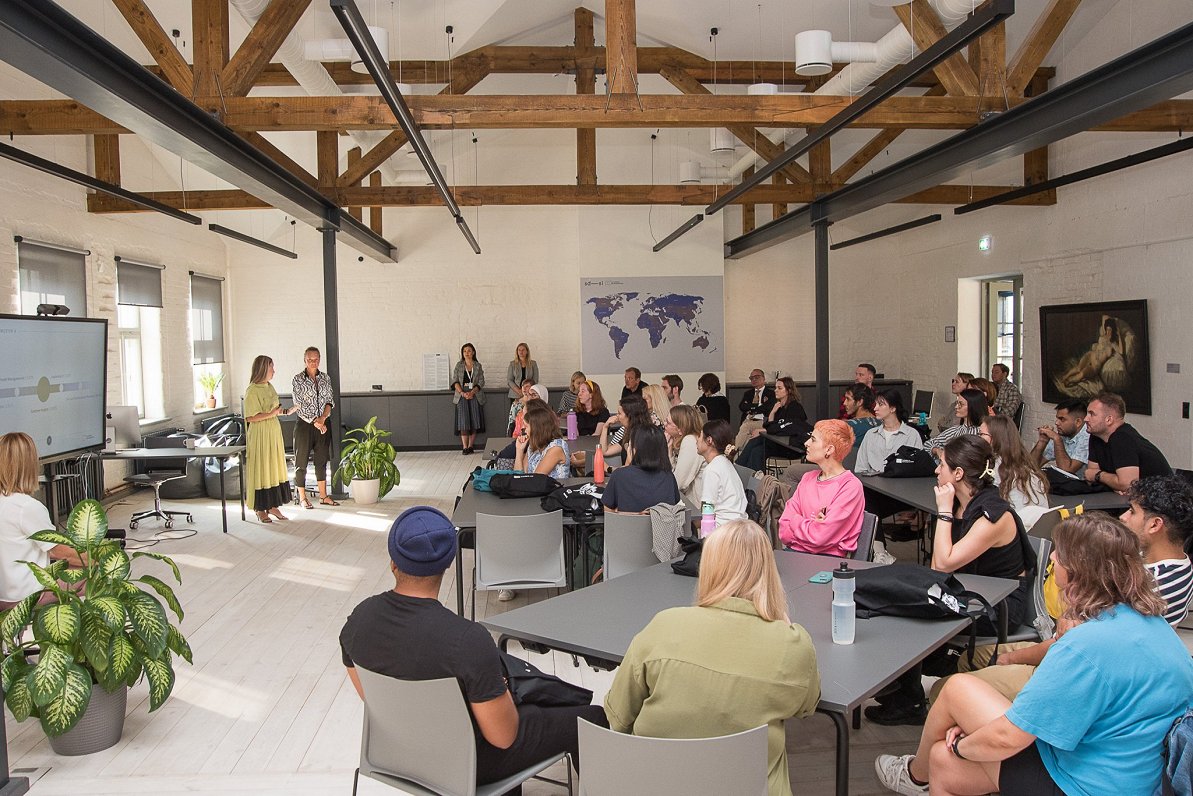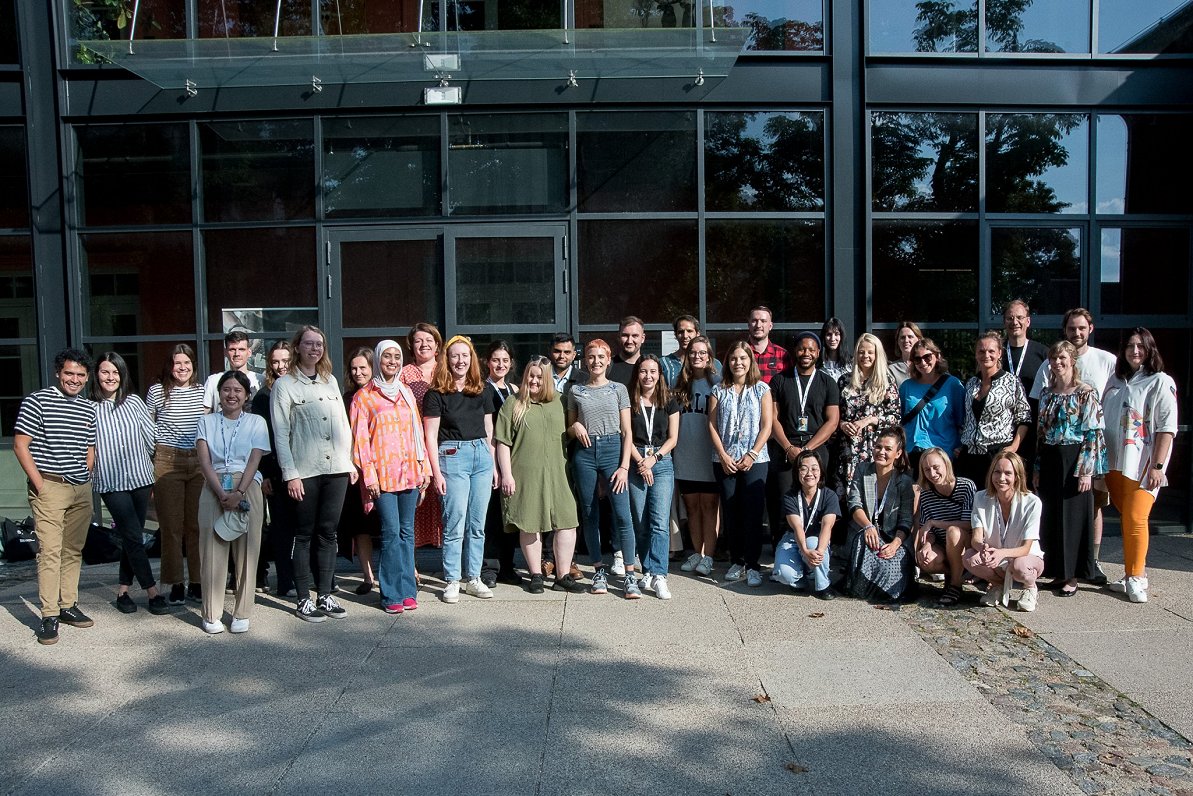A program of this level is being implemented for the first time in the Baltic States, and 20 students are being provided with scholarships as well as full health insurance. Four universities are involved in the implementation of the program, including partners from Finland and Estonia.
At the "Adatu fabrikā" ("Needle Factory") in Kuldīga, the long-awaited moment has come when students from Latvia, Mexico, Peru, Pakistan, India, China, Egypt and other countries have gathered in person.
Ginevra Papi, a student from Italy, is excited about this opportunity. Her education is related to the field of communications.
"I have worked for four years in Brussels, Belgium, in the offices of the European Commission. I was interested in "Erasmus +" mobility programs, but the usual programs were not available to me, so my colleagues advised me to look in the "Erasmus Mundus" catalog, where I also noticed this service design program offer. I didn't even expect to get here, but a few months later I received a confirmation that I have become a scholarship holder of this program," the student says.
Competition for places was very strong, confirms Ilze Supe, creator of the study program. The program is already in its third year, but the limitations of the pandemic have affected previous years.
"This year is a special event, because not only that, that 32 students from all over the world have come to study face-to-face, but this is also the first year of study that our study program has become a rarity called "Erasmus Mundus study programs. It is included in the list of the 30 best international study programs in Europe and is co-financed with European Union funds, we can provide 1,400 euro scholarships for the best 20 students every year for the entire study year, this creates a huge demand. This year we had 700 candidates from all over the world, we selected the best 32."

Service design is a field that will allow for the improvement of various services in the future, for example, banking services, e-health, educational institutions and others, so people with very different experiences and previous education have applied to study in Kuldīga.
"This year we have students with previous degrees in arts, business, cultural management, information technology, social sciences, even criminal psychology and law. The diversity is impressive. What are the conditions for entry? We follow European Union guidelines which require that no more how 10% of fellows can be from the same country, so geographical diversity is obvious," explains Supe.
This year there are seven students from Latvia, two of whom have received scholarships, even though the annual study fee reaches 4,000 euros for European students and 8,000 euros for students from third countries.
At the moment when Latvian Radio meets with students in the "Needle Factory", a lecture is being held led by Jonathan Howard from London. Ilze Kundziņa, director of the study program, tells more about attracting international teaching staff: "We have found a way to attract professionals as guest lecturers, because we have a very small proportion of academic staff... Currently there is Jonathan Howard from the United Kingdom, soon there will be lecturers from Austria and Italy, and of course also these international partners."
The program is implemented through the cooperation of four universities: under the leadership of the Latvian Academy of Arts, the cooperation takes place with the University of Lapland in Finland, the Estonian Academy of Arts and the Stockholm School of Economics in Riga. The duration of studies is two years, one of which students will spend in Kuldīga.
Erasmus Mundus Joint Masters are prestigious international masters, jointly designed and delivered by a group of higher education institutions. They involve at least 3 institutions from at least 3 different countries, and multiple associated partners from the academic and non-academic world. Typically, they include periods of study, research, traineeship, thesis preparation and defense.





























